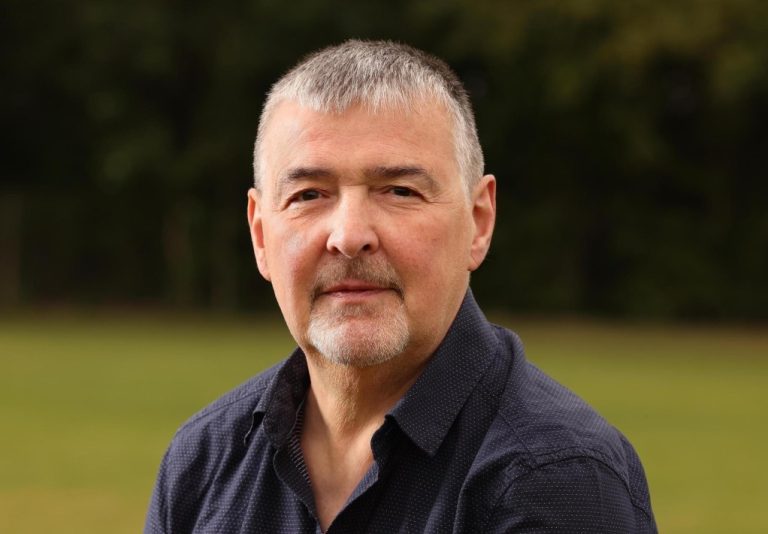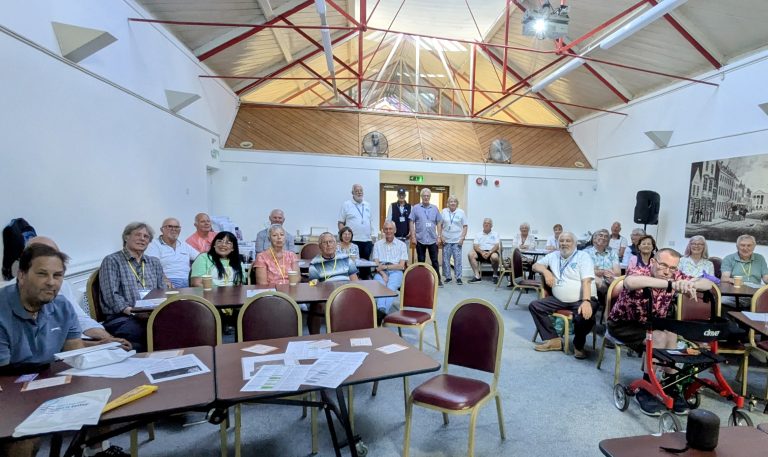Tackle Chairman Roger Wotton attended the Prostate Cancer Europe Round Table discussion held in Brussels on 23 January 2018. He reports:
This was an event that delivered a lot more than expected in terms of alignment and positivity. Thirty two attendees represented countries from Sweden in the north to Malta in the south and Ireland in the west to Romania in the east. Five pharmaceutical companies attended, along with representatives from the World Health Organisation and the European Parliament. Keeping order in his consummately professional style was Prof. Hendrik van Poppel.
Overall one was left with a feeling of the management of prostate cancer certainly moving forward, at least in terms of clinical practice if not entirely in terms of uniform progress at a pan-European level. It was encouraging to see the patient viewpoint being reinforced.
Increasing support for the inevitable march towards prostate cancer screening was welcome, although “more informed PSA testing” might be a more accurate description of where we are today. This at least addresses the out of date criticism of over-diagnosis and over-treatment, which was encouraging. More informed testing was seen to lead to earlier diagnosis and lower mortality, but more needs to be done to at least discuss the relevant risk factors leading to an agreed testing regime. This was not universally being applied.
There was no shortage of mention about leading edge therapies, but this is where there is some degree of disparity across Europe. This was also noticeable in the wide variation of incidence and mortality rates we are still witnessing.
From the European Commission point of view we heard about the vast sums of money (some €70 Billion) being allocated to cancer projects across Europe, with Horizon 2020 being a beacon for improving cancer outcomes. For prostate cancer, somewhere between 90 and 100 projects are currently being supported with a spend of €130 million.
The WHO Europe perspective highlighted 76,000 deaths p.a. from prostate cancer across Europe and many risk factors still being poorly understood.
The EAU White Paper was discussed and highlighted the cost of some €600,000 p.a. for drugs to treat a hormone-relapsed metastatic patient to achieve a 2 year improvement in survival. It raises the question as to whether we need to treat all patients with this type of therapy.
A good discussion followed on prostate cancer centre of excellence or “reference centres” as a way of ensuring equality of diagnosis and treatment. It would seem cultural differences might get in the way, but there are examples of where more sharing of facilities can work : the use of video and publishing outcomes in the UK ; the shared decision planning system in use in Germany, always with a second opinion factored in.
As the discussion turned to a roundtable on how individual countries were faring some interesting points were raised:
- The great step forward in robotic surgery, even though there are some countries with no robots (Northern Ireland for example). Italy has over 100 robots and 80% of prostatectomies in Sweden are now robotic. Question – does this mean newly qualified urologists become robot-dependant and not able to carry out general open surgery? In addition, quality control is required for all surgeons carrying out robotic surgery;
- We are seeing fewer and fewer radiotherapy fractions being given and at the same time advances in scanning techniques with Choline PET scans being superseded by PSMA scans where (in Germany) the delivery of the therapy goes alongside the scan, although they are aware of some potential toxicity issues;
- An interesting point was raised by Ireland in terms of health economics where we should be looking more closely at outcomes which cost the health service a great deal of money. The best treatment may not have the best outcome for the patient;
- It was seen as a real pity that for all the advances in treatment of breast cancer, prostate cancer is still seen as the poor relation. What can we learn from breast cancer screening and treatment?;
- It is encouraging to see the increasing use of MRI scans (or mpMRI scans) prior to biopsy, or maybe even working towards a scan before a PSA test? Evidence of the value of scanning prior to a TRUS biopsy is piling up every week. The big issue here is the inconsistency in quality of radiologists who need to be fully trained to use the new technology;
- There was a lot of interest in “big data”, having quality data collected across Europe to be able to compare progress and incidence at each stage. Even getting the results of PSA tests into databases would be an improvement. This was linked also to creating a network between doctors to support the three pillars of information, education and monitoring. Furthermore, it would improve sharing and standardised reporting. Meaningful outcome measure would have to be agreed.
Overall, a very worthwhile roundtable event where Europa Uomo should be strongly represented in the future.



